Finance for Small and Medium-Sized Enterprises - DTI Home Page
Finance for Small and Medium-Sized Enterprises - DTI Home Page
Finance for Small and Medium-Sized Enterprises - DTI Home Page
You also want an ePaper? Increase the reach of your titles
YUMPU automatically turns print PDFs into web optimized ePapers that Google loves.
<strong>Finance</strong> <strong>for</strong> <strong>Small</strong> <strong>and</strong> <strong>Medium</strong>-<strong>Sized</strong> <strong>Enterprises</strong>: A Report on the 2004 UK Survey of SME <strong>Finance</strong>s<br />
These results imply that most finances are in potential competition with each other:<br />
most notably, term loans, overdrafts <strong>and</strong> asset finance. The exception to this finding<br />
is the relationship between grants <strong>and</strong> term loans. Specifically, businesses are more<br />
likely to have a grant, given they have term loan. This result is unsurprising, since<br />
many grants are awarded conditionally on the business matching the grant funding<br />
with other sources of finance.<br />
Conclusions<br />
The report concludes by drawing together the various themes which emerge from the<br />
analysis. In particular, the general availability of finance is contrasted with specific<br />
issues <strong>for</strong> access to, <strong>and</strong> the cost of, finance <strong>for</strong> ethnic minority <strong>and</strong> female-owned<br />
businesses respectively. Further research is planned to enable firmer conclusions, <strong>for</strong><br />
ethnic minority businesses, to be reached. The low incidence of financially qualified<br />
management in SMEs is highlighted as another possible obstacle to obtaining finance.<br />
In the context of competition, the relationship between firm characteristics <strong>and</strong> bank<br />
switching is noted. Specifically, businesses with financially qualified management,<br />
<strong>and</strong> high growth businesses, are more likely to switch banks. This suggests that, on<br />
the dem<strong>and</strong>-side, a lack of financial acumen, or absence of dynamism, may contribute<br />
to the high level of inertia observed in SME banking relationships. There is no<br />
evidence that switching banks is either difficult, hinders access to finance, or raises<br />
the cost of borrowing.<br />
22


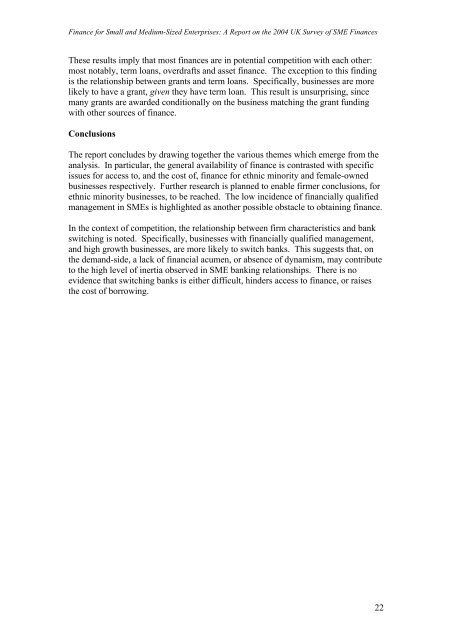
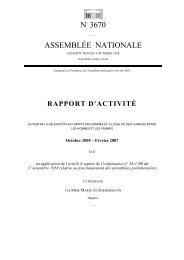
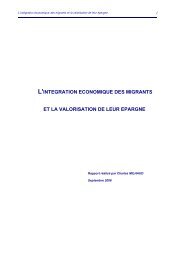

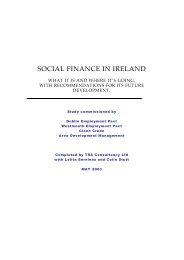

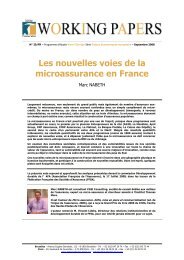

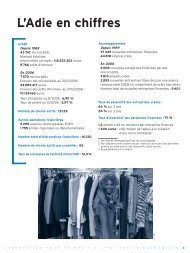
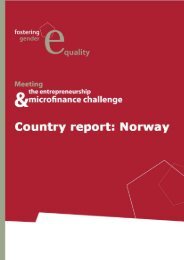


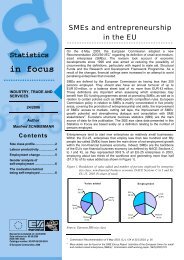
![Joint Report on Social Protection and Social Inclusion [2005]](https://img.yumpu.com/19580638/1/190x132/joint-report-on-social-protection-and-social-inclusion-2005.jpg?quality=85)
